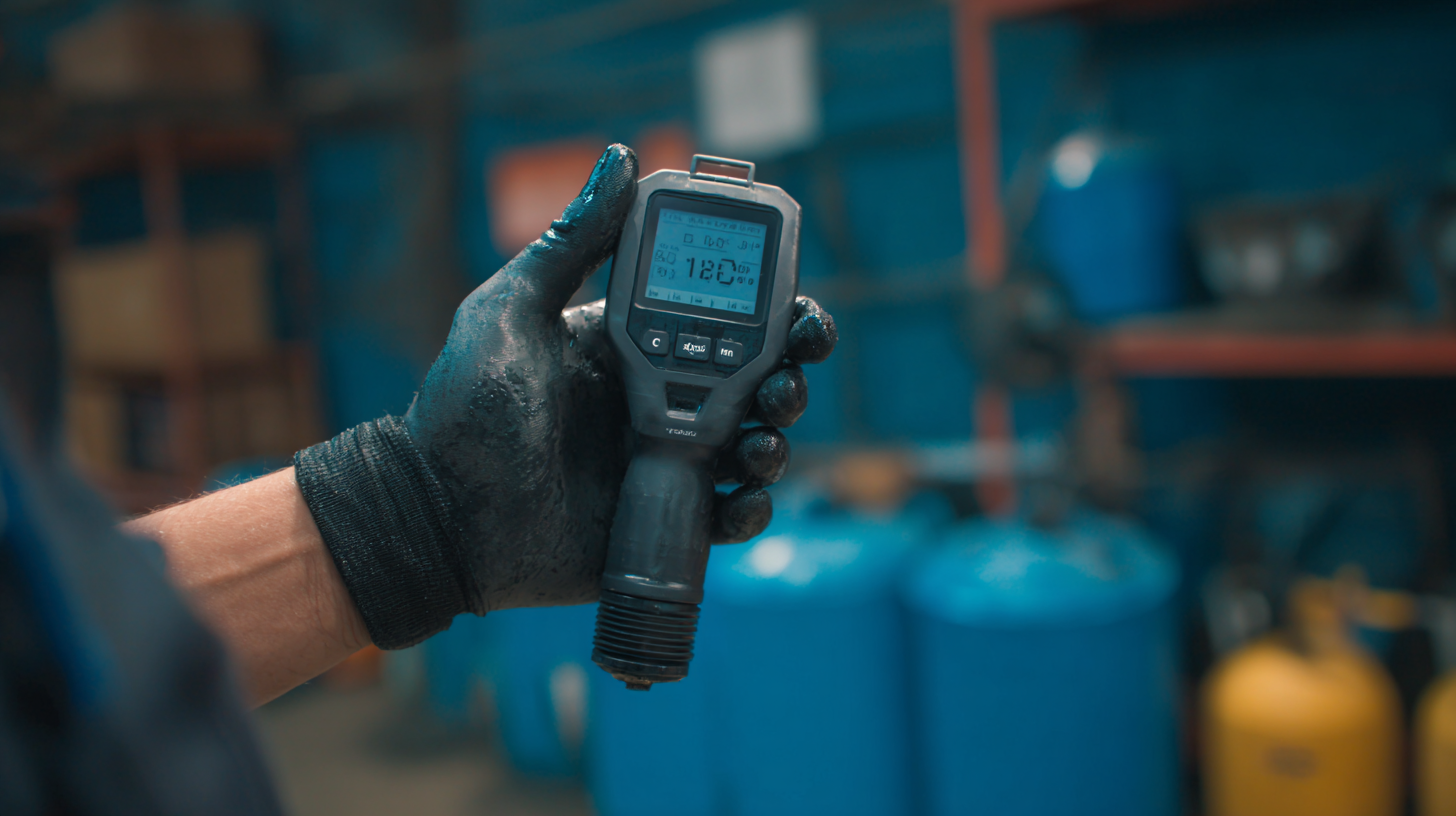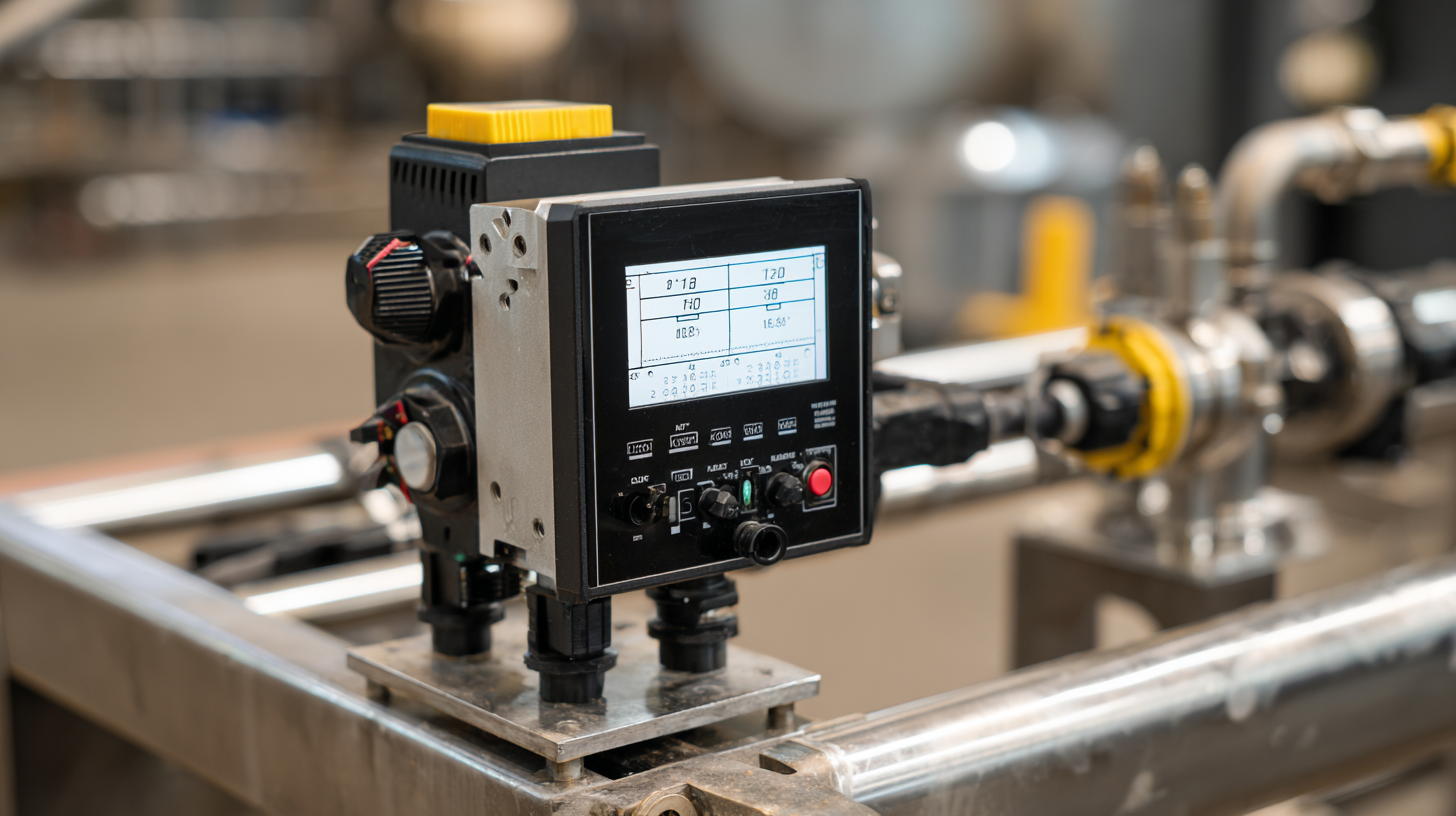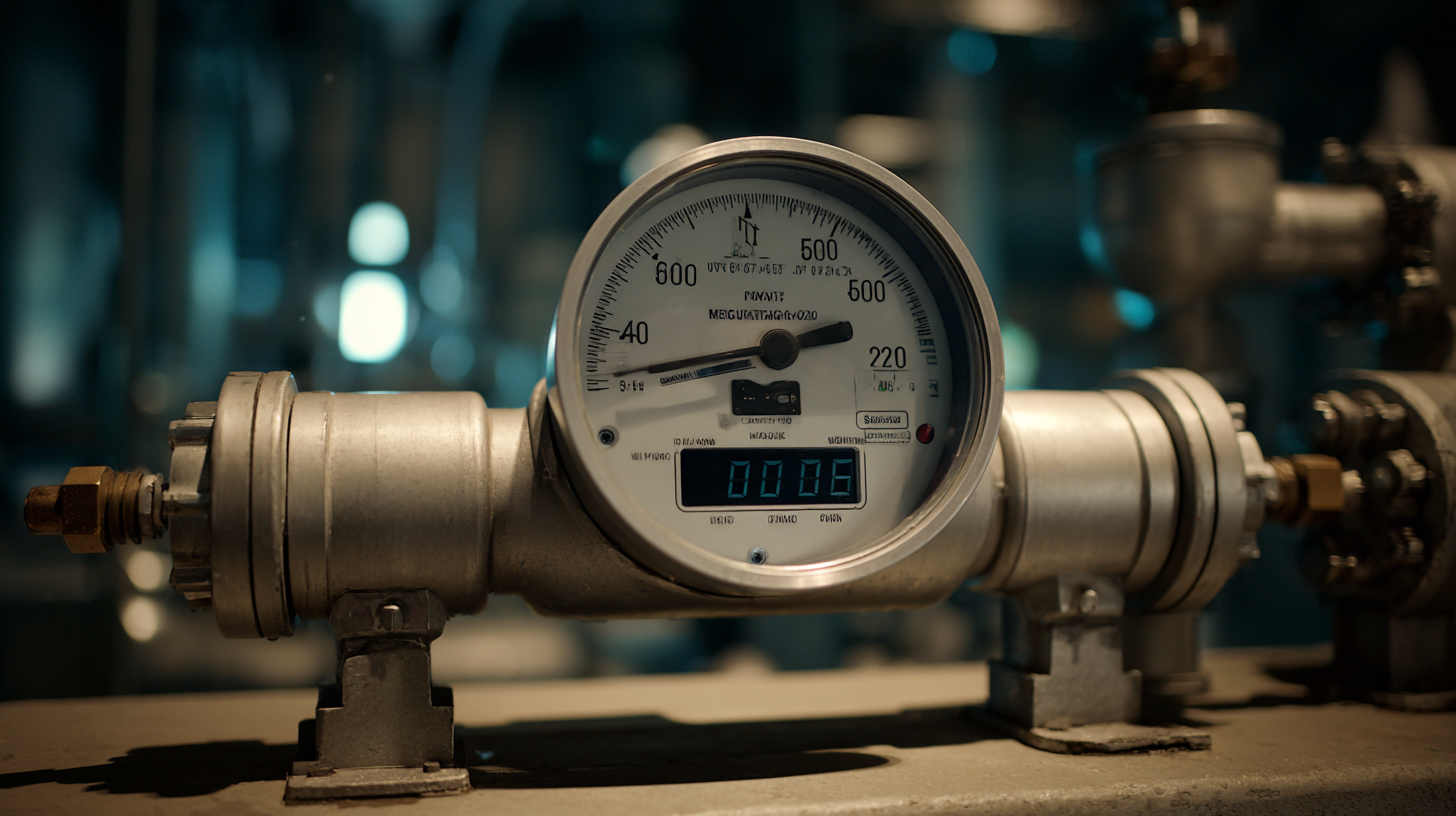How to Choose the Right Mag Meter for Your Industrial Applications
 In the realm of industrial processes, selecting the appropriate measurement tools is crucial for efficiency and accuracy. One such tool that has gained significant traction is the Mag Meter, known for its non-intrusive flow measurement capabilities and reliability across various applications. However, with the plethora of options available, choosing the right Mag Meter can be a daunting task.
In the realm of industrial processes, selecting the appropriate measurement tools is crucial for efficiency and accuracy. One such tool that has gained significant traction is the Mag Meter, known for its non-intrusive flow measurement capabilities and reliability across various applications. However, with the plethora of options available, choosing the right Mag Meter can be a daunting task.
Factors such as flow characteristics, fluid properties, and installation conditions play vital roles in making an informed decision. This blog will guide you through the essential considerations and technical specifications needed to identify the ideal Mag Meter for your specific industrial application, ensuring optimal performance and accuracy in monitoring fluid dynamics.
Whether you're dealing with water treatment, chemical processing, or any industry requiring precise flow measurement, understanding how to choose the right Mag Meter can make all the difference in your operational success.
Understanding the Fundamentals of Magnetic Flow Meters in Industrial Settings
 Magnetic flow meters, or mag meters, are essential tools in various industrial applications, especially in the processing of liquids and slurries. Understanding the fundamentals of how these devices operate can significantly influence their effectiveness in real-world scenarios. A magnetic flow meter works on the principle of electromagnetic induction, where a magnetic field is generated within the flow tube. As conductive fluids flow through this field, they induce a voltage proportional to their flow rate, allowing for precise measurement. This functionality makes mag meters highly suitable for a diverse range of applications, from water treatment to chemical processing.
Magnetic flow meters, or mag meters, are essential tools in various industrial applications, especially in the processing of liquids and slurries. Understanding the fundamentals of how these devices operate can significantly influence their effectiveness in real-world scenarios. A magnetic flow meter works on the principle of electromagnetic induction, where a magnetic field is generated within the flow tube. As conductive fluids flow through this field, they induce a voltage proportional to their flow rate, allowing for precise measurement. This functionality makes mag meters highly suitable for a diverse range of applications, from water treatment to chemical processing.
When selecting a magnetic flow meter, several key factors should be considered. First, the conductivity of the fluid is crucial, as mag meters require the fluid to have a conductive nature, generally at least 5 µS/cm. Additionally, the size and design of the flow meter should align with the existing piping and flow requirements of the application. Compatibility with various process conditions, such as temperature and pressure, also plays a vital role in ensuring reliable performance. By thoroughly understanding these fundamentals, industrial operators can make informed decisions when choosing the right mag meter to optimize their processes and enhance efficiency.
Key Factors to Consider When Selecting a Magnetic Flow Meter
Choosing the right magnetic flow meter for industrial applications requires careful consideration of several key factors to ensure optimal performance. One of the primary aspects to evaluate is the fluid properties, including conductivity, temperature, and viscosity. Magnetic flow meters are best suited for conductive liquids, so understanding the specific characteristics of the fluids you will be measuring is essential. Additionally, the meter must be compatible with the range of temperatures and pressures experienced in your system to prevent malfunction.
Another critical factor is the installation environment. Consider the space available for the flow meter and the piping configuration. Magnetic flow meters should be installed in straight pipe sections to minimize turbulence, which can affect accuracy. Moreover, the material of the flow meter and the lining should be chosen based on the chemical compatibility with the fluids being measured.
Finally, data communication capabilities are essential for modern industrial settings. Ensure that the chosen mag meter can integrate seamlessly with existing control systems or provide relevant output signals for monitoring and analysis.
Analyzing the Impact of Fluid Characteristics on Mag Meter Performance
When selecting a magnetic flow meter (mag meter) for industrial applications, understanding the characteristics of the fluid being measured is crucial. Fluid properties such as conductivity, viscosity, density, and temperature can significantly influence the performance of mag meters. For instance, according to a report by the International Society of Automation (ISA), fluids with a conductivity below 5 μS/cm may lead to inaccurate measurements, as mag meters require a minimum conductivity to generate an electromagnetic field. Therefore, industries handling low-conductivity fluids like certain hydrocarbons must consider alternative measuring technologies.
Additionally, the viscosity of the fluid can affect the flow profile, leading to measurement errors if the meter is not properly calibrated for the specific application. A study published in the Journal of Flow Measurement and Instrumentation indicates that high-viscosity fluids (>100 cP) can result in reduced flow rates and may require longer straight-run piping upstream of the meter to ensure accurate readings. Furthermore, temperature fluctuations can impact the density and viscosity of fluids, necessitating the use of temperature compensation features in mag meters to maintain measurement accuracy across varying operational conditions. These considerations exemplify the importance of thoroughly analyzing fluid characteristics to select the right mag meter for optimal performance in industrial settings.
Evaluating the Cost-Effectiveness of Different Mag Meter Technologies
When evaluating the cost-effectiveness of different magnetic flow meter technologies, it's vital to consider several factors that impact both operational efficiency and long-term financial sustainability. Today’s industrial applications often demand high precision alongside adaptability to variable conditions, which makes the selection of the right mag meter crucial. The latest advancements in flow measurement technology provide a range of options that vary in terms of material composition, calibration capabilities, and integration features, allowing facilities to tailor solutions to their specific needs.

Moreover, as industries aim to enhance compliance with regulations while also managing costs, the selection must focus on systems that optimize resource usage and ensure reliable performance. The increasing affordability of renewable energy technologies underscores the importance of efficient systems that can support variable power generation and storage, ultimately leading to improved operational efficiencies. By effectively analyzing these cost factors against performance capabilities, companies can make informed decisions that align with their sustainability goals while maximizing their return on investment in flow measurement technologies.
Industry Standards and Regulations Influencing Mag Meter Selection
In the realm of industrial applications, selecting the right magnetic flow meter (mag meter) is crucial, especially concerning industry standards and regulations that guide this choice. For instance, the Maritime and Port Authority of Singapore has recently updated its standards for bunker mass flow metering, mandating precise measurement methods for custody transfer applications. This new regulation highlights the importance of compliance in flow measurement for sectors like maritime logistics, ensuring that accurate and reliable data is collected for contractual and regulatory needs.
Moreover, the increasing complexity of liquid metering systems necessitates a deeper understanding of different flow measurement technologies. Current guidelines emphasize the suitability of certain flowmeters over others; for example, while differential pressure (DP) flowmeters can be utilized for gas, their application in liquid metering remains limited due to issues such as lag in response times and the inability to handle varying fluid properties effectively. As industries transition to enhanced flow measurement solutions, the selection criteria, which include factors such as environmental conditions and specific application requirements, are critical to achieving compliance and operational efficiency in custody transfer scenarios.
Mag Meter Selection Criteria
Related Posts
-

5 Reasons Why the 2 Inch Flow Meter is a Game Changer for Your Industry
-

How to Choose the Right Inline Flow Meter for Your Industrial Applications
-

The Ultimate Guide to Understanding Flow Meters and Their Impact on Industrial Efficiency
-

10 Best Chemical Flow Meters That Improve Accuracy by 95 Percent
-

Ultimate Guide to Choosing the Best Clamp On Water Flow Meter for Your Needs
-

Innovative Solutions for Inline Water Meter Efficiency Optimization
